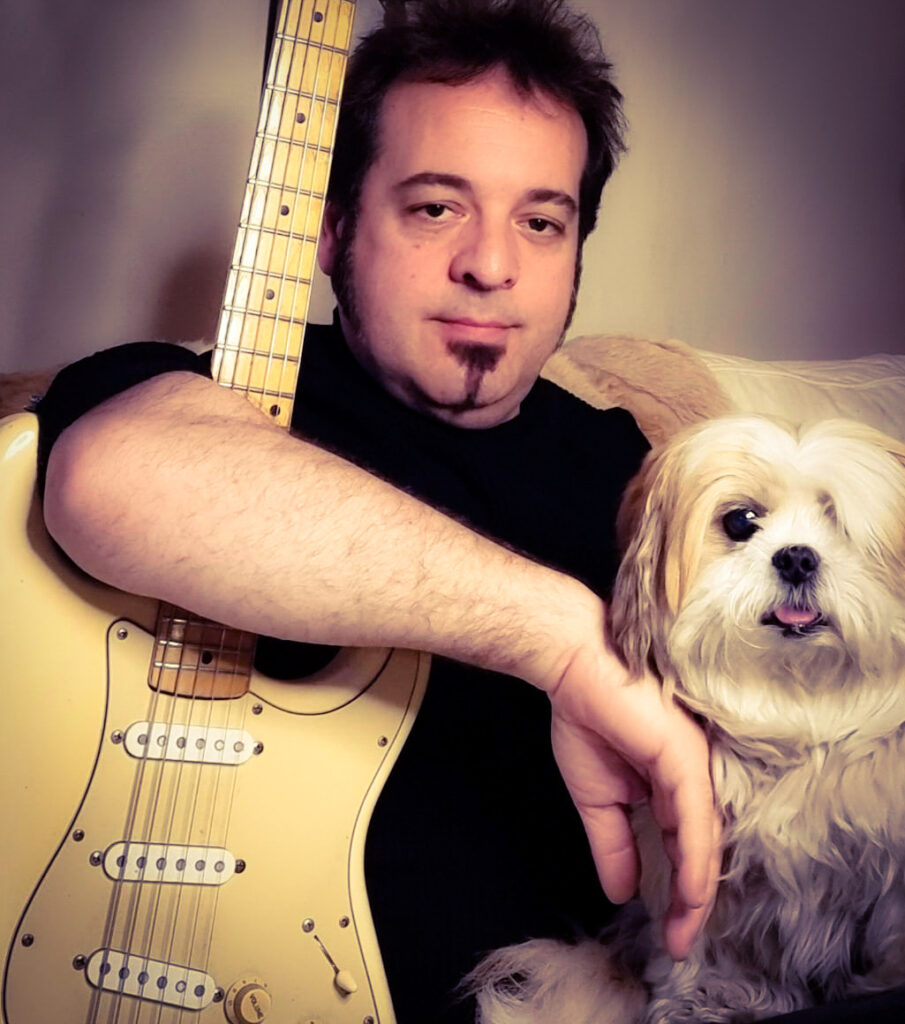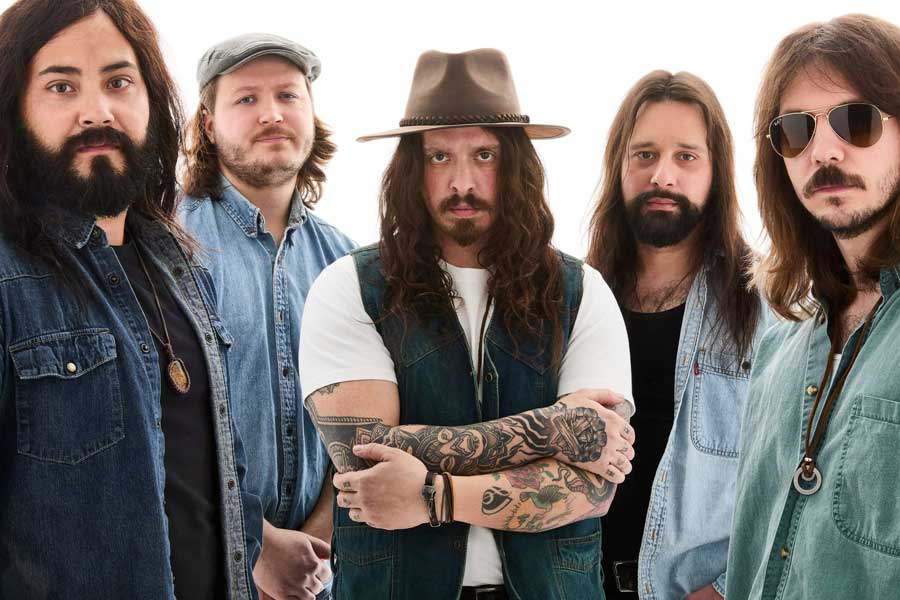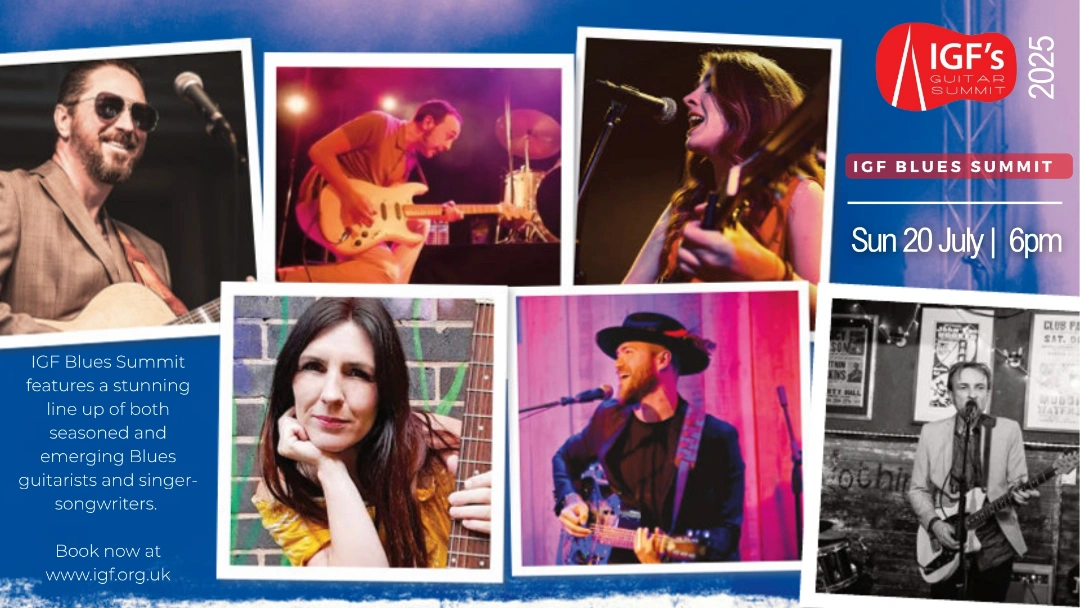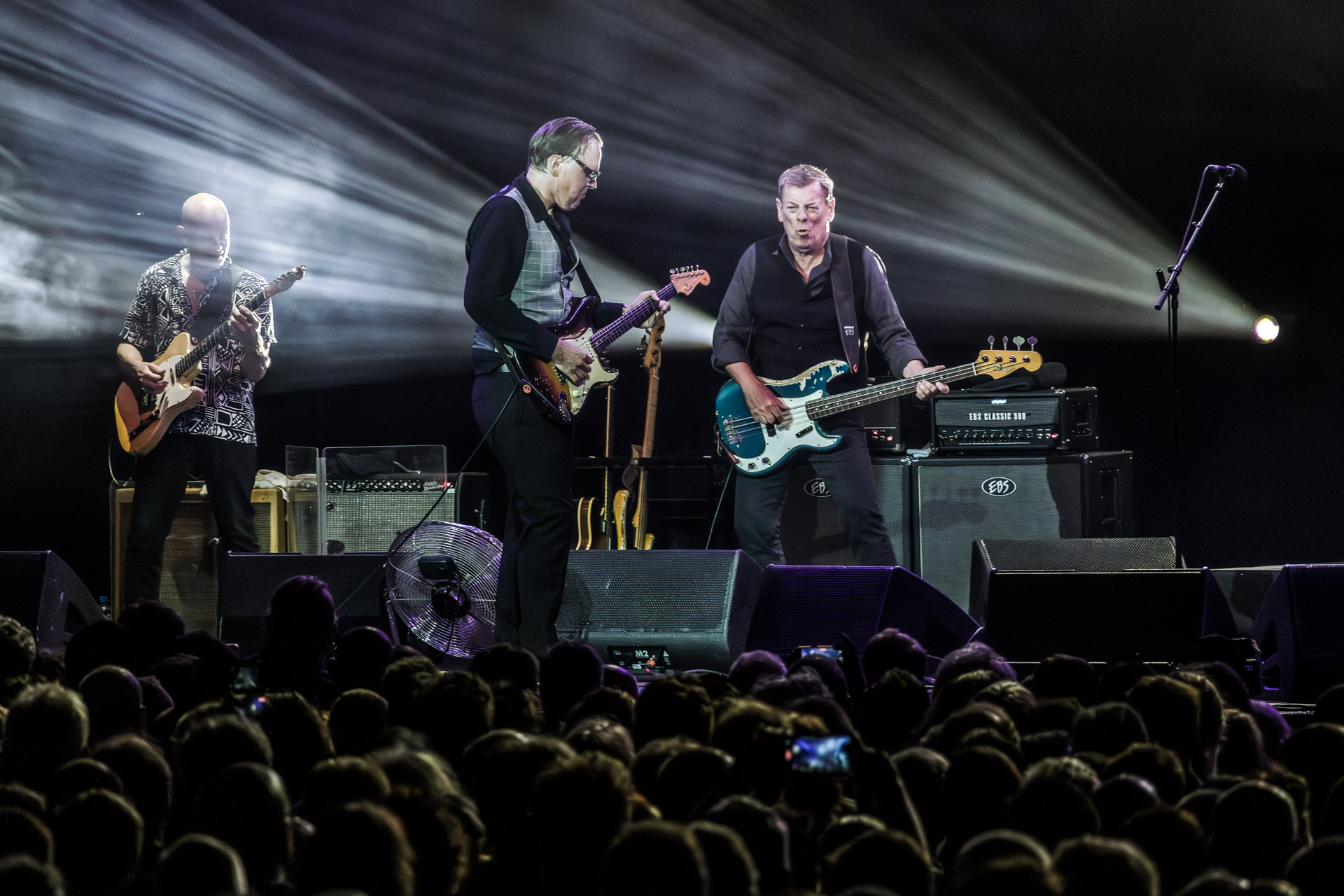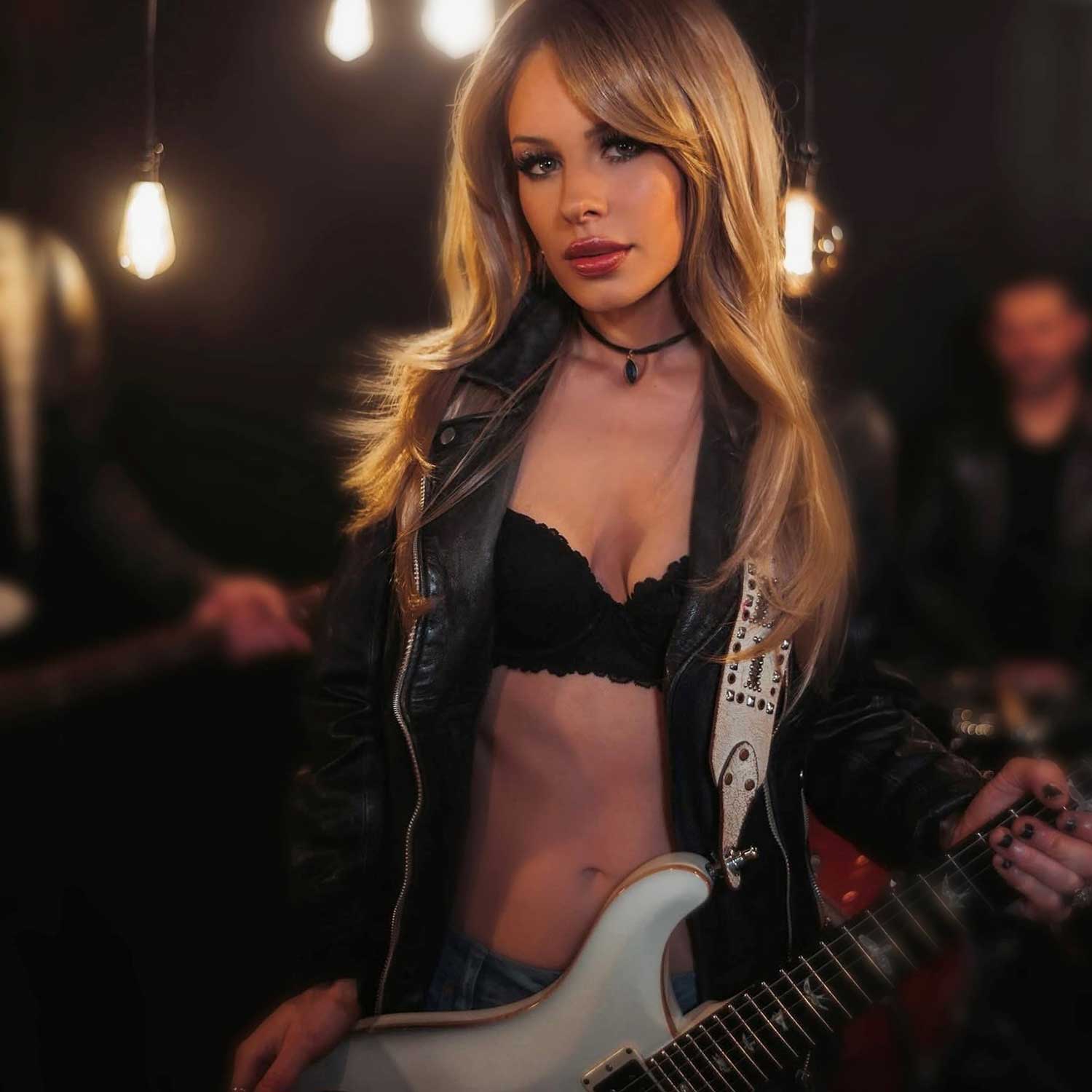Got a chance to catch up with longtime British Blues and Americana singer songwriter and guitarist Todd Sharpville. He has a new release “Medication Time” out on Dixiefrog Records. This harkens to a time in his life sixteen years ago where due to circumstances he ended up as in patient in a Psychiatric Hospital. Here he talks candidly about the new record, life and blues music, the music business and more.
Words: Colin Campbell Pictures: Supplied & Al Stuart
Thanks for talking with blues Matters, how are you doing?
Keeping on, keeping on, trying to get out of the ashes of what has been going on in the music industry since this Covid thing happened. Everyone has these problems, first world problems I suppose. So many elements of the industry have been damaged, it is going to take years to right themselves. Things were already tough for musicians before the crisis hit anyway. We are grass roots musicians, and they will keep doing what they have always done. We are all being turned into minstrels. We are like cockroaches trying to find a way out regardless!
Talk about the new album Medication Time, how it came to fruition, production, some tracks?
I wrote a song and sat back and looked at what I had done. I realized it was about the Mental Hospital experience I had sixteen years ago when living in Wales. It was surprising it took me sixteen years to say something about this musically. I found myself writing stuff that was relevant to the situation and what’s taken me from there to here. I do not know what triggered this off can’t get too self-analytical that would be like a dog chasing its tail. Reflection, objectivity, I will often write something in the midst of whatever is going around me emotionally. This is where I have the song, the groove and the changes and melodies. I blurt them out immediately then sit on them for a while. Then you can look at them lyrically with more objectivity. This is a better way of explaining yourself rather than just being in that moment. A combination of having the foundations of a song coming from the feeling of angst and sorrow or whatever it is you’re trying to convey. It took years for the inner workings of this album to say something about it! Production was similar to Porchlight. Instead of Jesse on bass who is with the North Mississippi Allstars, Duke Robillard’s consequent bassist Brad Hallen is equally phenomenal. Other than that, it is the same team.
Larry McCray features on the new release?
He has been a great mate he’s always been there for me. When we were recording the record. I was talking with him, he said when you’re in Rhode Island I have a few nights off, I’ll fly from Detroit and see you. We have thirty-year friendship and have not done any recording. Immediately after phoning I put a chorus down. The phrasing and the melody of Brothers was done but I couldn’t get the lyrics for the verses. I went out on the town with Larry and had a proper catch up. We sat in a Hotel jamming. It took ten minutes before waking up with a hangover for all the verses to write them. When figuring out the guitar solos if we got one harmony we would just know! The verses include everything good or bad we have been through during our friendship. The chorus corresponds to Fossie Bear/Kermit Frog dynamic. He was a constant through my time in Hospital. It was apt he should be on this specific album. It’s a song celebrating our friendship. His best advice came to me when he said I was a “loss virgin” with my first major loss. The losses strengthen us and that’s valuable advice.
When you write a song or cover one you do your best. I pay tribute when I cover a song and twist it. The one’s you have written yourself are kind of road tested anyway! There’s a cover I do with Sugar Ray Norcia. This song I never really liked as a guy down the corridor in the Hospital played it morning, noon, and night; Dire Straits Money For Nothing. I thought it would be a cool and honest thing to do. I made it into a prequal of the song done in a 60s blues style, what if Mark Knopfler and Sting copied my song sort of thing! I wanted to retrofy the song by paying tribute to it. I’m nervous about doing this live. On the release show Paul Lamb will be playing harmonica. He helped me with the track before I went to record it, we did a demo, turning the famous guitar riff into a harmonica riff. Walk Out In The Rain, I have always liked this song and the words resonated with me. Bob Dylan and Helena Springs wrote it. Eric Clapton’s version is better known. I wanted to make a version that was as angry as I heard it. Reflecting on time in Hospital showed me I was vulnerable as we all are. I was playing and writing to express, and the quality of my work was better for this! The more honest you can be as an artist the better a job you are doing. With guitar playing also, it’s easier to play what you know, we define our sound and styles. I play acoustic guitar and piano, not good enough to play keyboards in my own band!
Been able to road test any of the new songs?
Not had a lot of opportunity. That’s largely due to venues putting on things that were cancelled a year ago. I did a tour in the Czech Republic, seventeen gigs in eighteen nights and got a chance to do some proper road testing there.
How did it feel playing live events post Covid?
I didn’t go through the whole lockdown thing like other bands I know. My emotional response was very Army Officer in approach. There’s bullets flying I must stand to attention and do something! Living with strangers for six months and staying patient and bringing work on board whilst sleeping two hours a night for the six months we were in the lockdown house and organising the arty farty side, compiling set lists was not easy. Organising renting the mansion and other technical sides to this took time to recover from! I’m looking forward to gigging with different eyes from everyone else… I’m missing playing live subconsciously less so due to the crisis because I played live throughout that. I’m ready to get out there and do it properly now. It’s given me time to be objective about my life and self, look at my strengths and weaknesses and finding ways of getting better as I get older!
Is there still a place for live streaming now that people can go to live events?
Yes. Generally, it’s not something you can gain financially from. It had its time during lockdown when no one could go to gigs. It has a place, in showing people doing “naked” live performances but there are so many other constraints on us in the business that need sorted somehow. The whole streaming model, the reasons why it should have been better versus the negatives. On reflection the negatives outweigh the positives. We still have an autocratic music system where only the things that generally have cash behind them can be spotted and seen. There’s a whole lot of people promoting themselves and audiences must search through a lot more music to find what they are looking for. Everyone’s paying money to Spotify and those streaming platforms to counteract illegal file sharing. But this model was approved quickly and everywhere. One million traditional plays on radio would make you a millionaire back in the day. That’s how Albert Hammond made his money as an example in L.A. The value of songwriting has been stripped down from the top level, it’s hugely life changing. If you get a million streams that gets you one and a half grand nowadays. Genre based music like blues it seems we’re stripping away economically this culture form. That’s ripping out the heart and soul of the music business. It sort of guarantees as humans we’re only exposed to the top 1% mainstream pop, hip hop whatever is easy to capitalise on. That’s sad, we’re dumming down our culture.
How do you get your music to a new audience?
I have a record label who invest in me, but sure I would have to sell a zillion records to make do! Bums on seats on the road, that, and merchandise and even that is low. Some venues charge a percentage of these costs.People assume because I come from a posh background the landed aristocracy…even in the lockdown house. It’s a big distraction from who I really am. British people especially like to go on about this. Hey, like to focus on differences rather than what we have in common! Bloodline means nothing unless your dad was a great fucking blues legend or something!
When did your musical journey start?
I was twelve, I was a little “Teddy Boy” I was into 50s rock and roll. I was a member of the Buddy Holly and Jerry Lee Lewis fan club and got into that when I was six. The stuff I watched on Top Of The Pops either represented British punk or American disco which at that time sounded commercial to me. I love earl punk but not back then. It was all Elvis and my mum taking me to gigs. Saw fats Domino and Bill Haley. There was a place called Teds Corner in Victoria Market, a stall that did kid’s outfits. I wanted to know about the blues, because I knew Elvis was heavily inspired by the blues. I wanted to know about Elvis’s roots, he meant that much to me. I remember it was my birthday and I went to the blues section and my dad said I could get any album I wanted! It was a Freddy King Greatest Hits album. It had a different intro to Pack It Up and a live version of Ain’t Nobody’s Business. By the middle of the third song, I was totally sold! I always wanted to be a Doctor up to that point! My dad wanted me to do something practical and mum was you should be who you want to be! My guitar got confiscated if I did something wrong! I chose to play guitar because of this album. Up to then I was hearing the guitar in a Buddy Holly context. Freddy’s guitar speaks to me, I understood the language straight away, it was very liberating. It’s still a regular statement when I listen to music. Derek Trucks nowadays has this feel in his guitar playing also in Americana music these days there’s a lot of blues. I used to be a blues traditionalist competing with the likes of Otis Grand on the circuit. I was aware when I was playing that style that it was also under threat. I like to have horn sections like the early Texan blues players I listened to. It was something I felt I had to protect, I was a kid and listened to different styles. Now as I have got older, I want my music to represent me! Ronnie Earl kicked everyone’s asses with his style when I was a kid. Listening to these sorts of players was a great benchmark at the time. There are a lot of amazing young players out there honouring the past, it’s a huge responsibility.
What about future plans and projects?
I’ve got lots of songs that need representing in one form or another. I wrote a song during lockdown with Robbie Williams which I plan to release as a charity single at some point. David Arnold did a string arrangement for this. I’m enjoying the fact there are a new generation of Americana fans as well. They appreciate the country, soul, and Gospel side of my music.
There is a possibility of moving to the States or somewhere warm to live in the future!

